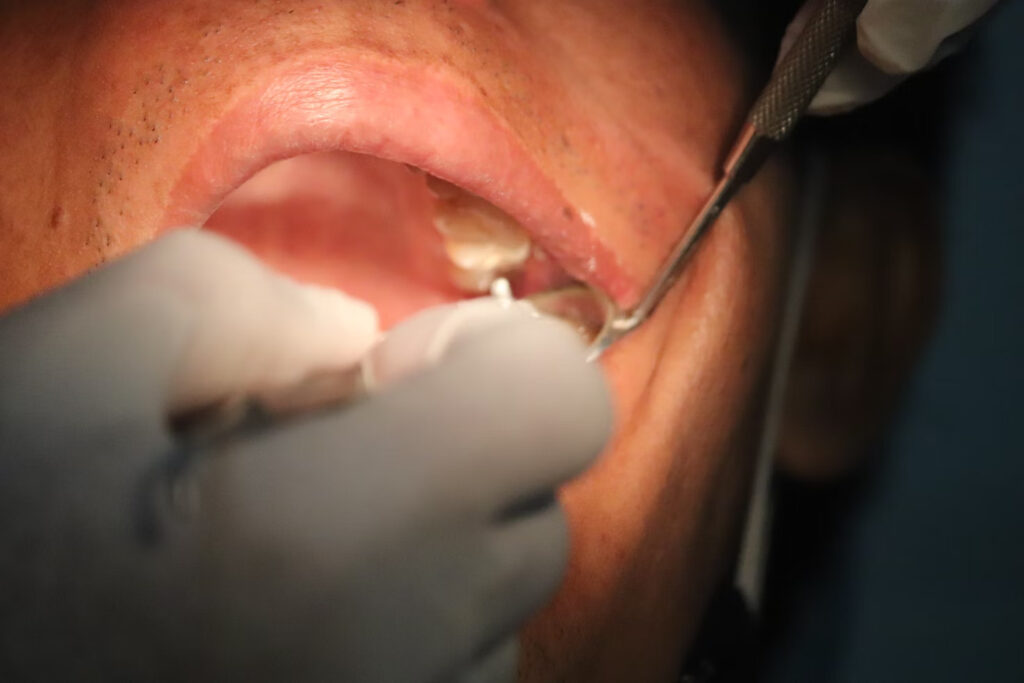


Maintaining good dental health is essential for a beautiful smile and overall well-being. One common dental concern that many people face is the formation of cavities.
Understanding the factors that contribute to the development of cavities and how long it takes for them to form can help individuals take proactive measures to prevent and treat them effectively.
In this article, we will explore the intricacies of cavity formation, stages of decay, influencing factors, prevention, treatment options, and how Belvedere Family Dentistry can help you maintain optimal oral health.
Dental health encompasses the well-being of your teeth, gums, and mouth as a whole. Proper oral hygiene ensures your teeth' longevity and prevents oral diseases. Brushing twice daily, flossing, and having regular dental check-ups are vital components of maintaining good dental health.
Neglecting dental health can lead to various problems such as tooth decay, gum disease, bad breath (halitosis), tooth loss, and oral infections. Additionally, research has indicated a link between oral health and overall systemic health, highlighting the importance of maintaining good dental hygiene practices.
A cavity, also known as dental caries or tooth decay, is a small hole that forms on the hard surface of your tooth. It occurs when the bacteria in your mouth produce acids that attack the tooth enamel, leading to demineralization and decay. If left untreated, cavities can grow larger and affect the deeper layers of the tooth, potentially causing pain, infection, and even tooth loss.

Understanding the stages of cavity formation can shed light on the timeline of how long it takes for a cavity to develop.
The initial stage of cavity formation starts with the accumulation of plaque on the tooth surface. Plaque is a sticky film containing bacteria that feed on sugars from the food we consume. Over time, these bacteria produce acids that erode the tooth enamel, paving the way for cavities to develop.
As plaque buildup persists, the acid produced by the bacteria begins to demineralize the tooth enamel. This process weakens the enamel, making it susceptible to decay.
Initially, this demineralization appears as a white spot on the tooth surface, indicating the early stages of cavity formation.
If left untreated, the demineralization progresses, and the decay reaches the dentin, the layer beneath the enamel. Dentin is softer and more vulnerable to acid erosion, causing the decay to advance more rapidly. At this stage, the cavity becomes visible as a small hole in the tooth.
When the cavity reaches the innermost layer of the tooth, known as the pulp, it can lead to an infection. The pulp contains nerves and blood vessels, and the infection can cause severe pain and discomfort. If the infection spreads, it may require more extensive dental treatments, such as root canals or extractions.
Several factors influence the speed at which cavities form in individuals. Understanding these factors can empower you to take proactive measures to prevent cavity formation.
Maintaining a consistent oral hygiene routine is crucial to preventing cavities. Brushing your teeth at least twice a day with fluoride toothpaste, flossing daily, and using mouthwash can help remove plaque and bacteria, reducing the risk of cavities.
The foods and beverages you consume can significantly impact your dental health. A diet high in sugary and acidic foods promotes bacterial growth and increases the likelihood of cavity formation.
Limiting the intake of sugary snacks and beverages, opting for healthier alternatives, and rinsing your mouth with water after consuming sugary foods help mitigate the risk.
Fluoride is a natural mineral that strengthens tooth enamel and makes it more resistant to acid attacks. Using fluoride toothpaste, drinking fluoridated water, and receiving professional fluoride treatments from your dentist can aid in cavity prevention.
Genetic factors and underlying health conditions can influence susceptibility to cavities. Some individuals may have naturally weaker enamel or lower saliva production, making them more prone to cavity formation.
Additionally, conditions that reduce saliva flow, such as dry mouth, can increase the risk of cavities.

Taking preventive measures and seeking timely treatment is crucial to managing cavities effectively and maintaining optimal dental health.
Preventing cavities is always better than treating them. Adopting good oral hygiene practices and making smart lifestyle choices can significantly reduce the risk of cavity formation and subsequent dental complications.
Investing time and effort in preventive dental care can yield long-term benefits. By preventing cavities, you can avoid costly and invasive dental treatments, maintain natural teeth for a lifetime, and enjoy better oral health.
If a cavity forms, early detection and prompt treatment are essential to prevent further decay and damage. Belvedere Family Dentistry offers various treatment options tailored to the severity and location of the cavity.
A root canal treatment may be necessary for cavities that have reached the inner pulp. The infected pulp is removed during this procedure, and the tooth is sealed to prevent further infection. In cases where the tooth is severely damaged and cannot be saved, extraction may be recommended.
For smaller cavities, dental fillings are often the treatment of choice. The decayed portion of the tooth is removed, and the hole left is filled with durable, tooth-colored material. In cases where the cavity is more extensive, or the tooth structure is compromised, a dental crown may be placed to restore strength and aesthetics.

At Belvedere Family Dentistry, we are dedicated to providing exceptional dental care and helping our patients achieve optimal oral health. Our team of experienced professionals offers a comprehensive range of preventive, restorative, and cosmetic dental services.
With a patient-centered approach, we emphasize preventive care and education to help you understand the best practices for maintaining your dental health.
From regular check-ups to personalized treatment plans, we strive to deliver comfortable and effective dental care that exceeds your expectations.
Cavity formation is a complex process influenced by various factors such as oral hygiene, dietary habits, and genetics.
Understanding the stages of cavity formation, preventive measures, and treatment options can help you maintain optimal dental health. By adopting good oral hygiene practices, making smart lifestyle choices, and seeking professional dental care, you can prevent cavities, preserve your natural teeth, and enjoy a healthy and beautiful smile.
If you're looking for a trusted dental partner to help you prevent and treat cavities, look no further than Belvedere Family Dentistry.
Our experienced team is dedicated to providing personalized and comprehensive dental care that meets your unique needs.
Schedule an appointment with us today and take the first step towards a cavity-free and healthy smile.
704-927-5499
manager@belvederedentistry.com
manager@belvederedentistry.com
Fill out the form below to schedule an appointment with Belvedere Family Dentistry. We will contact you regarding the intervention you require.
Uptown Charlotte Dentistry & Orthodontics
We do our best to make it easy for you to get the beautiful smile you deserve! Our office accepts nearly all major insurance plans. Even though dental insurance is a private arrangement between you and your company, we will file your claim, handle all the paperwork, and help you get maximum insurance benefits.
Follow us
Don't Miss Out On Dental Tips or
Special Discounts.
